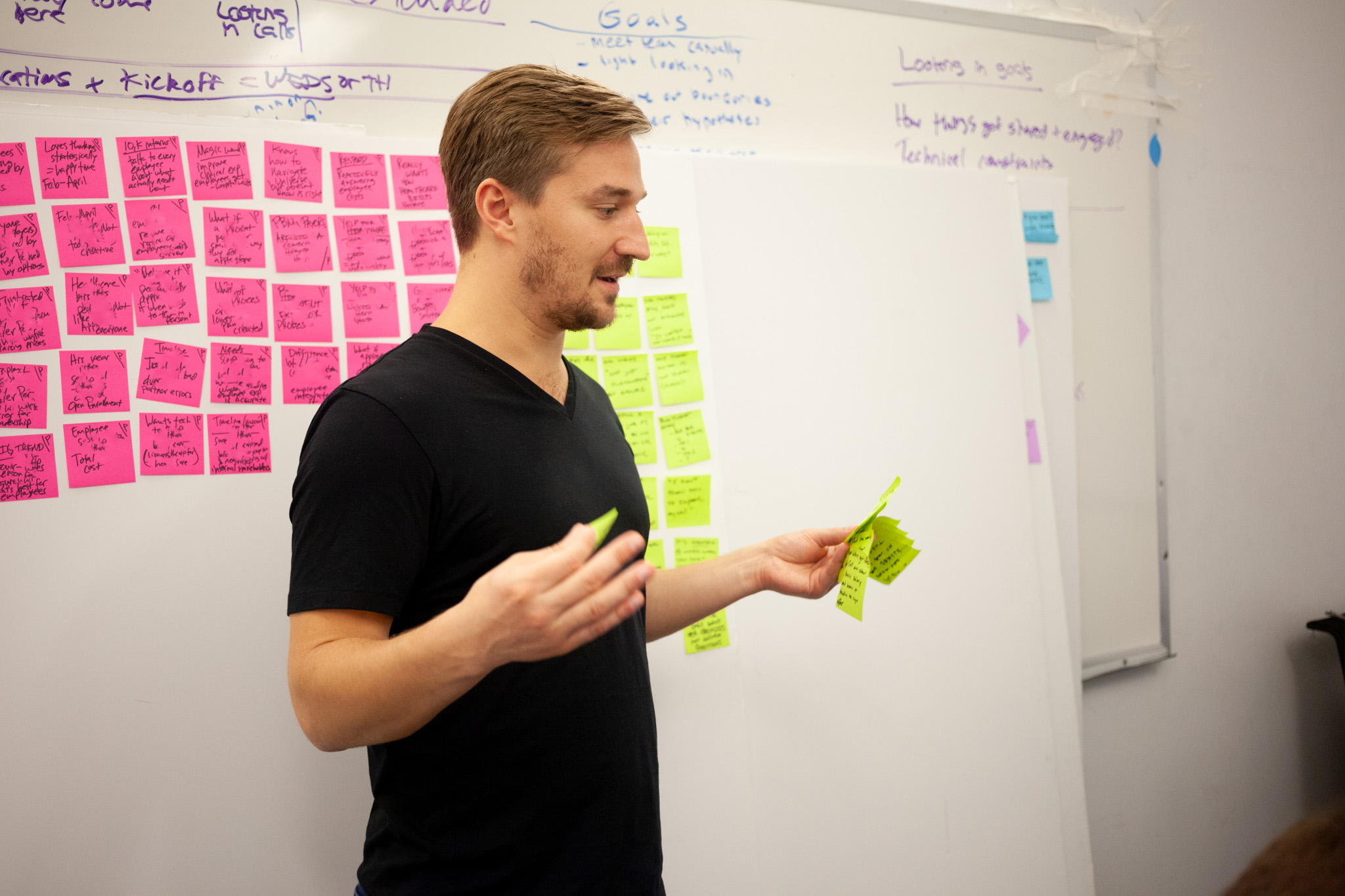
What is your company worth? How Infinite Cake may value your business & structure a transaction.
If you’re on our website, that means two things: 1) you have good taste (LOL), and 2) you might be wondering “What would someone pay for my business? What goes into a valuation? What about deal structure?” Glad you asked! But first, a big fat caveat.
🚨 Caveat alert: While this blog post will give you a sense of the range we could pay, a full valuation would depend on the details of your specific business, and there are many factors that could push that number higher or lower.
✅ Checking the boxes
First, you should know that we raised money from investors who expect us to find a single business to acquire which checks a few important boxes:
- Growing business (ideally 10% or more)
- Predictable revenue (ideally recurring)
- Large industry or market
If your business doesn’t check every box, it may have an influence on the final valuation, but that’s okay! We’d still love to talk.
🎯 Your multiple
Your business will likely be valued on a multiple of EBITDA (earnings)—unless it’s a SaaS company, in which case it will probably be valued on a multiple of Annual Recurring Revenue (ARR).
EBITDA Multiples
Your EBITDA multiple will vary greatly based on your EBITDA itself; generally, higher EBITDAs command higher multiples. In our case, we’re looking for a company earning between $2–7M of EBITDA.
For companies of that size, the market value is generally between 4–7X EBITDA, depending on a number of things. For example, if your business is experiencing slower growth, or is facing some external risks, it may pull the multiple down. If your business has exceptional recurring revenue and is growing quickly, it could push the multiple up.
If your company is growing so fast that you think last year’s EBITDA isn’t a fair basis, get in touch! We may be able to value the company on a “snapshot” of current EBITDA.
SaaS Multiples
We’re really putting our cards on the table here, but you can determine a fair-market ARR multiple very accurately with the simple formula from SaaS Capital. You only need two numbers from your company’s performance: its current ARR Growth Rate, and its Net Revenue Retention (NRR). For us, this valuation would serve as a starting place, and then be adjusted for the particulars of your specific business.
💰 The purchase price
Once you know the basis (EBITDA or ARR), you can calculate a very rough enterprise value (EV) for your business. This is the total price that a buyer might pay to acquire 100% of your company.
If you have a service business or tech enabled service business in the $2-7M EBITDA range, you can take your EBITDA and multiply by 4–7 to get a broad range of what your business might be worth (i.e. the Enterprise Value). If you have a pure SaaS business, you would multiply the ARR component of your revenue by the multiple calculated from the SaaS Capital valuation methodology.
For example, for a $4M EBITDA company which is growing quickly and has highly recurring revenue, your multiple could be 7X, yielding a total EV of $28M.
However, unlike buying a used car, it’s very rare for a buyer to give you 100% cash up front and then part ways. That’s where deal structure comes in.
📜 Deal structure
For businesses in our size range, the full purchase price is generally paid using some combination of cash at close, seller debt, an earn-out, and rolled equity. The exact distribution can be tailored to your situation, which can help you optimize the tax impact and fit your particular financial needs. So what are all these terms?
- Cash at close: This is the simplest! Usually over 50% of a transaction is paid upfront, giving you the opportunity to put that liquidity to work immediately.
- Seller debt: Typically, a seller will effectively lend part of the purchase price to the buyer, which lowers the upfront costs for the buyer. The buyer will then pay the seller back with a predefined interest rate. This has a number of advantages, from spreading out your tax burden, to increasing your total return via interest.
- Earn-out: An earn-out is additional consideration you can earn if the business hits certain growth or revenue targets. Provided the business continues to perform, an earn-out increases the amount you could earn from the sale of the business, especially in a high-growth scenario.
- Rolled equity (or rollover equity): Rolling equity essentially means that you take some of the purchase price that you’d otherwise receive as cash, and invest it in the business. Like any investment, there’s risk—but we hope you’d be excited to bet on our leadership and the continued success of your business.
⚖️ How do we know what’s fair?
We’re lucky to have the backing of about 20 limited-partner investors who are active in this specific segment of the market, which is known as the “lower-middle market.” We connect with them regularly to stay current on the market.
Ultimately, we want a positive relationship with the business owner who sells to us; we may be working side-by-side with you for months or even years if you choose to stay on. We want to you to feel excited about our values and about the value we add, not burned by our valuation!
☝️ One last thing: You.
No discussion of valuation and deal structure would be complete without covering your most valuable resource: your time. When thinking about any acquisition, you should consider how you want to spend your time over the coming years.
Some private equity buyers expect you to stay on as CEO. Some strategic buyers want you to join the parent company with a more limited role. In contrast, we expect to join your company full-time as CEO and CPO/CTO, which opens up two possibilities that not all buyers can offer:
- After a transition period, we could help you phase out quickly if you’re eager to move on.
- Or you could stay in the business but shift gears. Maybe you want to keep doing sales but dial down to 10 hours/week.
📞 Let’s talk
If you’re curious to know more, schedule a meeting so we can give you a tighter range on your valuation, or drop us a note if you have questions. We’d love to meet you and see whether there might be a fit!
- Categories:
- Author:
-

Ben Syverson
Ben is an entrepreneur from Chicago, IL and Co-Founder of Infinite Cake. He previously spent 10 years at IDEO, leading large software teams to design and ship software that has had a positive impact on millions. Prior to IDEO, Ben released photo and video products ranging from apps to a physical camera.
- About:
- Led by Nate Tower and Ben Syverson, Infinite Cake is looking to acquire and grow one exceptional business with their expertise in technology, design, and leadership.
